Dubare Elephant Camp is a popular tourist destination located in the Indian state of Karnataka. The camp is situated on the banks of the Kaveri River, in the district of Kodagu, and is surrounded by lush forests and hills. The camp is known for its interactions with elephants and offers a range of activities for visitors, including elephant rides, safaris, and bathing.
The camp was originally set up by the Forest Department of Karnataka to train elephants for the famous Mysore Dasara festival, which takes place every year. However, over time, the camp became a popular tourist destination and is now managed by the Jungle Lodges and Resorts group.
Dubare Elephant Camp offers a unique opportunity for visitors to learn about and interact with elephants in a natural setting. Visitors can watch the elephants being bathed and fed, and can even participate in these activities themselves. Elephant rides and safaris are also available, giving visitors the chance to explore the surrounding forests and spot local wildlife. In addition, the camp offers a range of other activities, such as nature walks, fishing, and rafting in nearby waters.
Details on the elephant interactions available at Dubare Elephant Camp
Dubare Elephant Camp is known for its close interactions with elephants, and visitors can participate in a range of activities to learn more about these gentle giants. Here are some details on the elephant interactions available at Dubare Elephant Camp:
- Elephant Bathing: One of the most popular activities at the camp is the elephant bathing experience. Visitors can watch the elephants being bathed by their mahouts (handlers), and even join in the fun by scrubbing and washing the elephants themselves.
- Elephant Feeding: Visitors can also feed the elephants at the camp, which is an incredible experience. The elephants are fed a diet of hay, fruits, and vegetables, and visitors can offer them bananas and other treats.
- Elephant Rides: Visitors can take a ride on the back of an elephant and explore the surrounding forests and hills. Elephant rides are available for individuals as well as groups.
- Elephant Safaris: Visitors can also go on an elephant safari, which is a great way to see the wildlife in the area. The safaris usually last for an hour and take visitors through the forests and along the river.
- Elephant Training: Visitors can watch the mahouts training the elephants, which is an interesting experience. The training sessions involve commands, vocalizations, and physical actions that help the elephants learn new skills and behaviors.
- Elephant Photography: Visitors can also take photos with the elephants, which is a great way to remember the experience. The mahouts are happy to help visitors take photos with the elephants and capture those special moments.
Recommended Read A Day in the Life of an Elephant Mahout at Dubare: Experiencing the Gentle Giants – Travel India Travel
Wildlife and birdwatching opportunities at Dubare Elephant Camp
Dubare Elephant Camp is situated in a beautiful and lush natural environment, surrounded by forests, hills, and the Kaveri River. As such, there are many opportunities to spot a variety of wildlife and birds in the area. Here are some of the wildlife and birdwatching opportunities available at Dubare Elephant Camp:
- Elephants: Of course, the main attraction at Dubare Elephant Camp is the elephants themselves. Visitors can observe the elephants up close and learn about their behaviors and interactions with their mahouts.
- Gaur: The gaur, also known as the Indian bison, is a large and impressive animal that can be found in the forests around Dubare Elephant Camp. These majestic animals are a sight to behold and are best seen early in the morning or late in the evening.
- Sambar Deer: Sambar deer are common in the forests around Dubare Elephant Camp and can often be seen grazing in clearings or near the river. They are most active early in the morning or late in the evening.
- Langurs: Langurs are a type of monkey that can be found in the forests around Dubare Elephant Camp. They are often seen jumping from tree to tree and can be quite entertaining to watch.
- Crocodiles: The Kaveri River is home to several species of crocodiles, including the mugger crocodile. Visitors can spot these prehistoric creatures basking on the riverbanks or swimming in the water.
- Birds: The forests and riverbanks around Dubare Elephant Camp are home to a variety of bird species, including kingfishers, egrets, darters, and storks. Birdwatching is a popular activity in the area and can be enjoyed throughout the day.
River Rafting at Dubare Elephant Camp – An Exhilarating Adventure – Travel India Travel
History and cultural significance of elephants in India
Elephants have played an important role in Indian culture and history for centuries. Here is an overview of the history and cultural significance of elephants in India:
- Ancient India: Elephants were first domesticated in ancient India, around 4,000 years ago. They were used for transportation, agriculture, and war, and were also prized for their strength and intelligence.
- Royal Status: Elephants were highly valued by Indian rulers, who used them as a symbol of power and wealth. The famous Mughal emperor Akbar, for example, owned thousands of elephants and used them in his military campaigns.
- Festivals and Religious Ceremonies: Elephants have always played an important role in Indian festivals and religious ceremonies. During the famous Hindu festival of Diwali, for example, elephants are decorated with elaborate designs and paraded through the streets.
- Timber industry: Elephants were also used extensively in the timber industry, where they would be trained to move heavy logs and transport them across difficult terrain.
- Modern times: Today, elephants continue to be a beloved animal in Indian culture, and are used in a variety of ways, including for tourism, transportation, and religious ceremonies. They are also protected by the government, and their conservation is an important issue in India.
Dubare Elephant Camp Timings
The timings of Dubare Elephant Camp are as follows:
- The camp is open from 9:00 am to 11:00 am in the morning.
- It reopens at 4:30 pm and closes at 5:30 pm in the evening.
Please note that these timings may be subject to change and visitors are advised to confirm the timings with the camp authorities before visiting. It is also recommended to arrive early to avoid long queues and crowds, especially during peak tourist seasons.
Dubare Elephant Camp Entry Ticket Cost
The entry ticket cost for Dubare Elephant Camp varies depending on the activities and experiences you choose. Here are the approximate entry ticket costs for the various activities at the camp:
- Elephant Interaction: The cost for elephant interaction is around INR 800 to INR 1500 per person, depending on the type of interaction you choose.
- River Rafting: The cost for river rafting is around INR 150 to INR 300 per person.
- Trekking: The cost for trekking is around INR 300 to INR 500 per person.
- Boat Ride: The cost for a boat ride is around INR 250 to INR 400 per person.
Please note that these prices may be subject to change and it is recommended to confirm the prices with the camp authorities before visiting. Additionally, these prices do not include any transportation or food expenses, so visitors should budget accordingly.
Best Time To Visit Dubare Elephant Camp
The best time to visit Dubare Elephant Camp is from October to March, which is the winter season in Karnataka. During this time, the weather is pleasant, with comfortable temperatures and lower humidity levels, making it easier to enjoy outdoor activities such as elephant interactions, trekking, and river rafting.
The monsoon season, which lasts from June to September, can be quite wet and humid, with heavy rainfall and slippery roads, making it difficult to travel and engage in outdoor activities.
The summer season, from April to May, can be hot and humid, with temperatures often exceeding 35°C, which can make it uncomfortable to enjoy outdoor activities.
Overall, the winter season is the best time to visit Dubare Elephant Camp, as the weather is pleasant and conducive to outdoor activities, and visitors can also witness the stunning natural beauty of the surrounding forests and riverbanks.
Top 6 Activities To Do At Dubare Elephant Camp – Travel India Travel
Exploring the Flora and Fauna of Dubare Elephant Camp
How To Reach Dubare Elephant Camp
Dubare Elephant Camp is located in the Kodagu district of Karnataka, India, and can be reached by various modes of transportation. Here are some ways to reach Dubare Elephant Camp:
- By Air: The nearest airport to Dubare Elephant Camp is the Mysore Airport, which is approximately 100 kilometers away. The Kempegowda International Airport in Bengaluru is another major airport located about 260 kilometers away.
- By Train: The nearest railway station to Dubare Elephant Camp is in Mysore, which is approximately 90 kilometers away. There are regular trains from major cities in India to Mysore, and visitors can then take a taxi or bus to reach the camp.
- By Road: Dubare Elephant Camp is well-connected by road, and visitors can take a taxi or bus from nearby cities such as Mysore, Bengaluru, and Mangalore. The camp is located about 240 kilometers from Bengaluru, 100 kilometers from Mysore, and 170 kilometers from Mangalore.
Please note that visitors should plan their travel in advance and check for road and weather conditions, as the roads leading to the camp can be steep and winding in some places. Additionally, it is recommended to hire a local guide or driver for transportation, as they will be familiar with the local roads and can provide valuable insights into the surrounding areas.
Tourist Places Near Dubare Elephant Camp
There are several tourist places near Dubare Elephant Camp that visitors can explore. Here are some of the most popular ones:
1. Namdroling Monastery
Located in Bylakuppe, about 30 kilometers from Dubare Elephant Camp, Namdroling Monastery is the largest teaching center of the Nyingma lineage of Tibetan Buddhism in the world. The monastery is home to more than 5,000 monks and nuns, and visitors can explore its stunning architecture, art, and religious artifacts.
2. Nisargadhama
Nisargadhama is a beautiful island located in the middle of the Cauvery River, about 20 kilometers from Dubare Elephant Camp. Visitors can enjoy activities such as boating, elephant rides, and wildlife spotting, and can also explore the island’s lush forests and bamboo groves.
3. Abbey Falls
Abbey Falls is a popular tourist destination located about 30 kilometers from Dubare Elephant Camp. The waterfall is surrounded by lush green forests and coffee plantations, and visitors can enjoy a scenic hike to the falls and soak in the natural beauty of the surrounding areas.
These are just a few of the many tourist places near Dubare Elephant Camp that visitors can explore. Other popular destinations include Madikeri, Talacauvery, and Raja’s Seat.
Omkareshwara Temple Timings, Significance, History and More – Travel India Travel
Local cuisine and cultural activities at Dubare Elephant Camp
Dubare Elephant Camp offers visitors a chance to experience the local cuisine and cultural activities of the region. Here are some of the popular options:
- Coorg Cuisine: Coorg or Kodagu is known for its unique cuisine, which includes dishes such as pandi curry (pork curry), kadumbuttu (rice balls), and bamboo shoot curry. Visitors can try these dishes and other local delicacies at the camp’s cafeteria.
- Traditional Dance and Music: Visitors can enjoy traditional dance and music performances by local artists, which showcase the cultural heritage of the region. Some of the popular dance forms include Kodava dance, Yakshagana, and Bharatanatyam.
- Village Walks: Visitors can take a walk through the nearby villages and interact with the locals to learn about their daily lives, customs, and traditions.
- Coffee Plantation Tour: Coorg is famous for its coffee plantations, and visitors can take a tour of the nearby plantations to learn about the coffee-making process and enjoy the scenic beauty of the surrounding areas.
- Bonfire Nights: The camp organizes bonfire nights where visitors can gather around a bonfire, enjoy music and dance performances, and indulge in local snacks and drinks.
These cultural activities and local cuisine experiences at Dubare Elephant Camp provide visitors with a glimpse of the rich cultural heritage of the region and make for a memorable and immersive travel experience.
Personal accounts and travel stories from visitors to Dubare Elephant Camp
There are several personal accounts and travel stories from visitors to Dubare Elephant Camp that showcase the unique experiences and memories that the camp offers. Here are a few examples:
- A visitor from Mumbai shared their experience of interacting with the elephants at the camp and feeding them sugarcane and bananas. They also enjoyed a coracle ride on the Cauvery River and a visit to the nearby Nisargadhama island.
- A traveler from Chennai shared their experience of staying in the camp’s tents and waking up to the sounds of birds and the gurgling river. They also enjoyed a trek to the nearby Dubare Reserve Forest and a cultural dance performance in the evening.
- A family from Delhi shared their experience of visiting the camp with their young children, who were delighted to ride the elephants and learn about their behavior and lifestyle. They also enjoyed a coffee plantation tour and a visit to the nearby Namdroling Monastery.
- A group of friends from Bangalore shared their experience of taking a road trip to Dubare Elephant Camp and enjoying the scenic beauty of the region. They also enjoyed a bonfire night and music performances by local artists.
These personal accounts and travel stories highlight the unique experiences and memories that visitors can create at Dubare Elephant Camp, and showcase the camp’s ability to cater to travelers of all ages and interests.
9 Adrenaline Pumping Adventure Sports in Coorg – Travel India Travel
A Guide to Temples in Coorg – Exploring the Divine – Travel India Travel
Reviews and ratings of Dubare Elephant Camp
Dubare Elephant Camp has received a mix of reviews and ratings from visitors, with most reviewers praising the camp’s unique experiences and natural beauty. Here is a summary of the reviews and ratings:
- TripAdvisor: Dubare Elephant Camp has a 4 out of 5 rating on TripAdvisor, with many visitors praising the camp’s elephant interactions, coracle rides, and cultural performances. Some visitors also appreciated the camp’s efforts towards elephant conservation and welfare.
- Google Reviews: Dubare Elephant Camp has a 3.9 out of 5 rating on Google Reviews, with visitors praising the camp’s serene location and natural beauty. Some visitors also appreciated the knowledgeable staff and their efforts to educate visitors about elephant behavior and conservation.
- Lonely Planet: Dubare Elephant Camp has been featured in Lonely Planet’s guidebooks and has been recommended as a must-visit destination for visitors to Coorg.
Overall, while there have been some complaints about the camp’s cleanliness and maintenance, the majority of reviews and ratings highlight the unique experiences and natural beauty of Dubare Elephant Camp, making it a popular destination for visitors to Coorg.
Accommodations near Dubare Elephant Camp
There are several accommodation options available near Dubare Elephant Camp, ranging from budget-friendly homestays to luxurious resorts. Here are some of the popular options:
- Dubare Inn: This budget-friendly guesthouse is located just a few minutes away from the camp and offers basic amenities such as comfortable rooms, hot water, and free Wi-Fi.
- The Windflower Resorts & Spa: This luxurious resort is located about 20 km away from the camp and offers spacious rooms, a spa, an outdoor pool, and a restaurant serving local and international cuisine.
- Amanvana Spa Resort: This upscale resort is located about 30 km away from the camp and offers villas with private pools, a spa, an outdoor pool, and a restaurant serving local and international cuisine.
- Coorg Cliffs Resort: This mid-range resort is located about 15 km away from the camp and offers comfortable rooms, an outdoor pool, a spa, and a restaurant serving local and international cuisine.
- Homestays: There are several homestays available near the camp, offering visitors a chance to experience the local culture and hospitality. Some popular homestays include Honey Pot Homes, Dubare Elephant View Cottage, and Green Pastures Homestay.
These accommodation options near Dubare Elephant Camp cater to different budgets and preferences, making it easy for visitors to find a suitable option for their stay. It’s recommended to book in advance, especially during peak tourist season.
10 Most Popular Waterfalls in Coorg – A Nature Lover’s Guide – Travel India Travel
Sustainability and conservation efforts at Dubare Elephant Camp
Dubare Elephant Camp has been actively involved in sustainability and conservation efforts to protect the local environment and the elephants in their care. Here are some of the initiatives undertaken by the camp:
- Elephant Welfare: The camp has a dedicated team of mahouts and veterinarians who ensure the well-being of the elephants. The elephants are given a healthy diet, regular exercise, and access to veterinary care when required.
- Elephant Conservation: The camp also participates in elephant conservation efforts, such as tracking and monitoring elephant populations, educating visitors on elephant behavior and conservation, and supporting research on elephant habitats and behavior.
- Eco-Friendly Practices: The camp has implemented several eco-friendly practices, such as rainwater harvesting, waste management, and using solar energy to power some of their operations.
- Community Development: The camp has also been involved in community development projects, such as providing education and healthcare facilities for the local communities, supporting local businesses, and promoting eco-tourism.
- Tree Plantation: The camp has also initiated a tree plantation program to increase the green cover in the region, reduce soil erosion, and support local biodiversity.
These sustainability and conservation efforts at Dubare Elephant Camp showcase the camp’s commitment towards protecting the local environment and wildlife, while also providing visitors with unique and responsible tourism experiences.
35 Best Places To Visit in Coorg in 2023 – A Complete Guide – Travel India Travel
Frequently Asked Questions About Dubare Elephant Camp
Here are some frequently asked questions about Dubare Elephant Camp:
Is it safe to interact with elephants at Dubare Elephant Camp?
Yes, it is generally safe to interact with elephants at the camp. The elephants are trained and cared for by experienced mahouts and veterinarians, who ensure their safety and well-being.
What is the best time to visit Dubare Elephant Camp?
The best time to visit Dubare Elephant Camp is from October to May when the weather is pleasant and the river water is calm.
Are there any age restrictions for elephant interactions at Dubare Elephant Camp?
No, there are no age restrictions for elephant interactions at the camp. However, children must be accompanied by adults and follow the safety guidelines provided by the camp.
How long does the elephant interaction at Dubare Elephant Camp last?
The elephant interaction at the camp usually lasts for around 30-45 minutes, during which visitors can feed, bathe, and ride the elephants.
Is photography allowed at Dubare Elephant Camp?
Yes, photography is allowed at the camp. However, visitors must follow the safety guidelines provided by the camp and not use flash photography, which may startle the elephants.
Are there any accommodation options available at Dubare Elephant Camp?
No, there are no accommodation options available at the camp. However, there are several accommodation options available nearby, ranging from budget-friendly homestays to luxurious resorts.
Can visitors go on a jungle safari at Dubare Elephant Camp?
No, visitors cannot go on a jungle safari at Dubare Elephant Camp. However, visitors can go on nature walks and bird watching tours in the surrounding forest areas.
These are some of the frequently asked questions about Dubare Elephant Camp. If you have any other questions or concerns, it’s best to contact the camp directly.


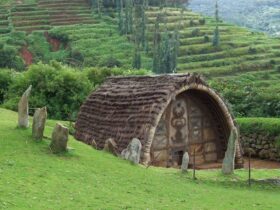

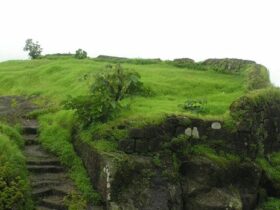
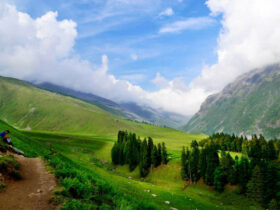
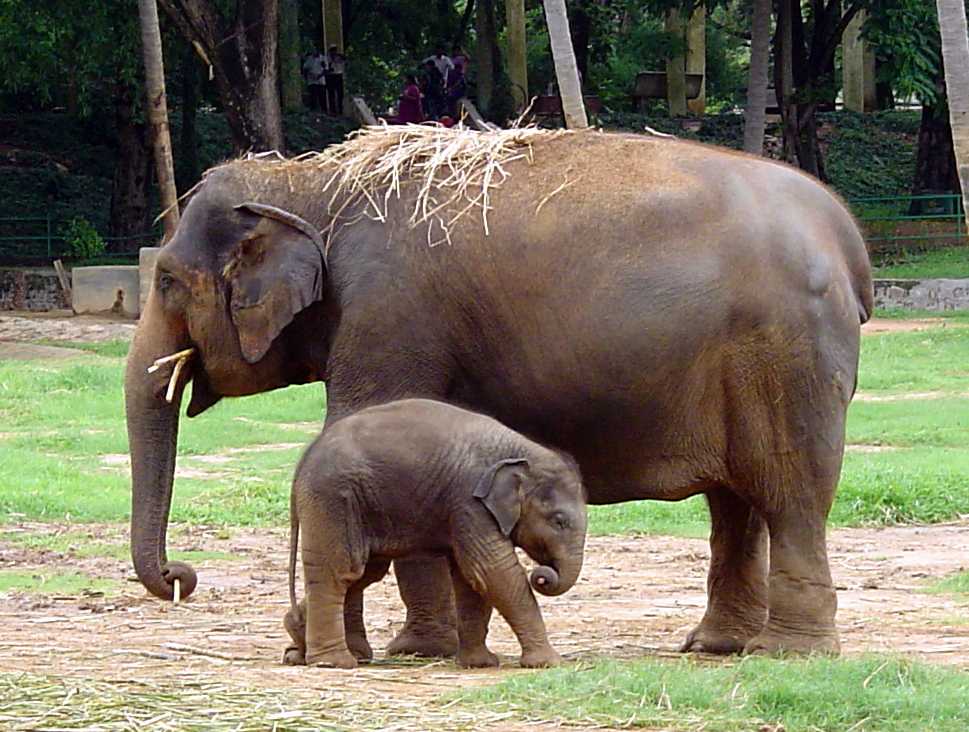

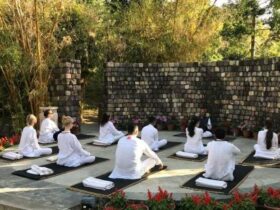
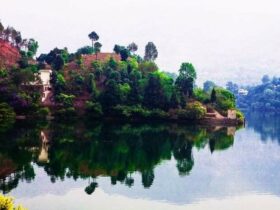
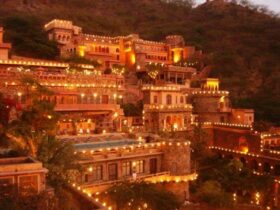
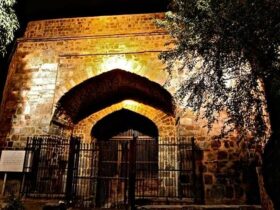
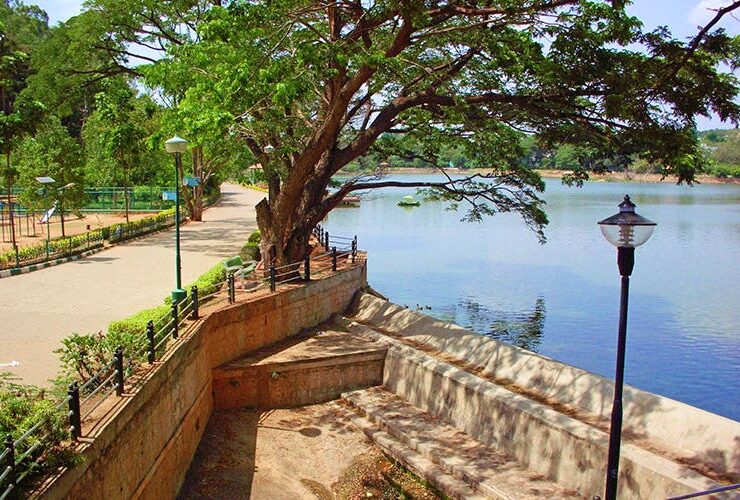
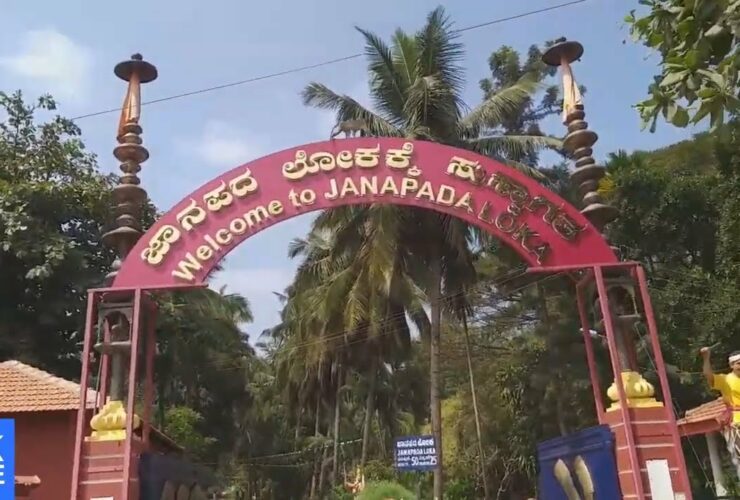
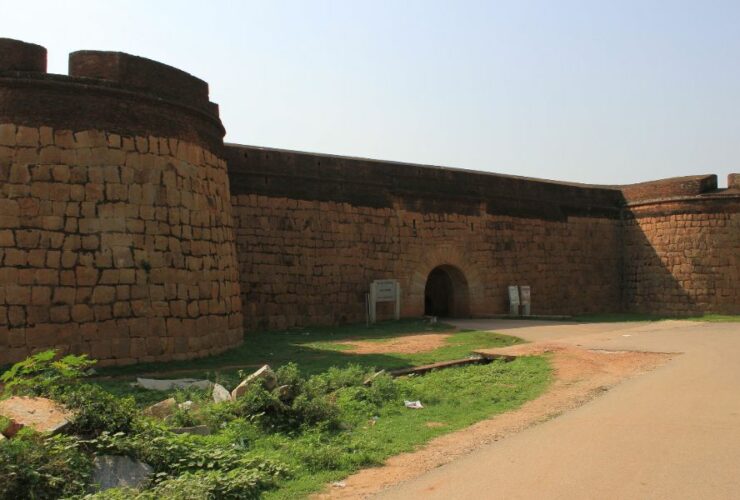
Leave a Reply
View Comments